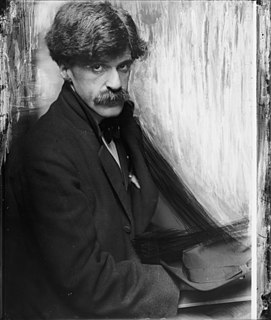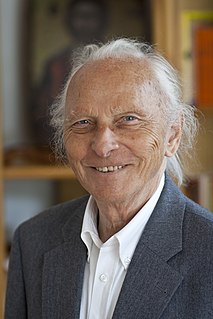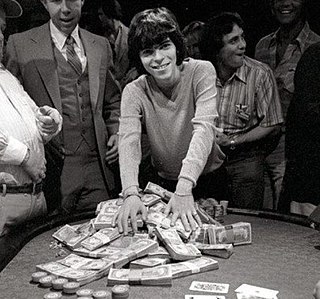A Quote by David E. Cooper
It is hubris, claim the critics of 'absolutism', to suppose that we could ever even approximate to a true description of how the world anyway is. It is bad faith or 'bullshit', respond 'absolutists', to suppose - as the rhetoric of postmodernism implies - that we could seriously live and act with the thought that truth and value are simply our own projections. An attractive feature of 'ineffabilism', as I see it, is that it evades these accusations.
Related Quotes
Certainly each side - the 'absolutists' and the 'constructivists' or 'humanists', as I've labelled them - accuses the other of hubris, and lays claim to humility. I see hubris on both sides: a pretence that we could ascend to an objective account of the world, on the one hand, and a pretence that we have the resources to live and act without a sense of there being something to which we answerable, on the other. So both sides are 'villains'.
I thought I'm going to die. So why can't I do everything? And what is this idea that I worked all day yesterday, so I'm tired today? I've never believed that.I thought, "Just suppose I could choreograph a ballet." And I did it. Suppose I could teach dance at the theater in Cleveland. And I did it. Suppose I could sing for a living - that I could stop these two jobs as a waitress and a salesperson.
I suppose I could claim that I had suspected that the world was a cheap and shoddy sham, a bad cover for something deeper and weirder and infinitely more strange, and that, in some way, I already know the truth. But I think that's just how the world has always been. And even now I know the truth, the world still seems cheap and shoddy. Different world, different shoddy, but that's how it feels.
If love could force my own thoughts over the edge of the world and out of time, then could I not see how even divine omnipotence might by the force of its own love be swayed down to the world? ...how it might, because it could know its own creatures only by compassion, put on mortal flesh, become a man, and walk among us, assume our nature and our fate, suffer our faults and our death?
His true Being comes to light and even penetrates his clothing. We should not limit ourselves to Jesus. We have to recognize ourselves, our own true form... Life would be so simple if we could always see what we are; if we could recognize what our neighbors are. If we could see the beams of light that pass through their clothing; if we could not only see their external form, but also experience their true being.
Truth is never our enemy, ever. So we should never freak out about people who claim to have discovered truth. If it's true truth, God owns it and has already accounted for it, and while nothing that is true ever contradicts God's revealed word in the Bible, discovered truth sometimes contradicts the words of Christians. We shouldn't be afraid of this, because God knew it before anybody else and its discovery is dependent on his sovereignty anyway. The truth is that the truth is ours - all truth is our truth because we are of Christ and Christ is of the sovereign God.
Our lives are full of supposes. Suppose this should happen, or suppose that should happen; what could we do; how could we bear it? But, if we are living in the high tower of the dwelling place of God, all these supposes will drop out of our lives. We shall be quiet from the fear of evil, for no threatenings of evil can penetrate into the high tower of God.
I suppose that every age has its own particular fantasy: ours is science. A seventeenth-century man like Blaise Pascal, who thought himself a mathematician and scientist of genius, found it quite ridiculous that anyone should suppose that rational processes could lead to any ultimate conclusions about life, but easily accepted the authority of the Scriptures. With us, it is the other way `round

































